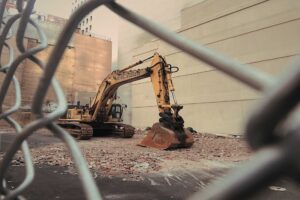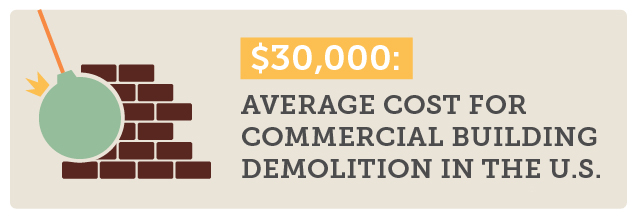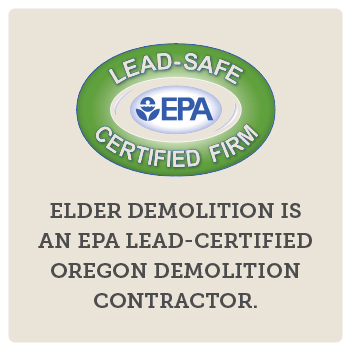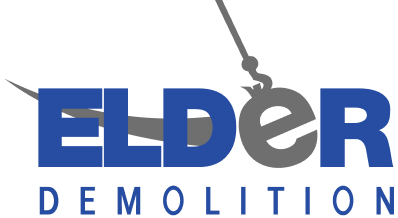 Due to such factors as location, permitting, and hazardous materials, commercial demolition is a complex process that varies from project to project. Today, the average demolition costs for commercial buildings in the United States are around $30,000.
Due to such factors as location, permitting, and hazardous materials, commercial demolition is a complex process that varies from project to project. Today, the average demolition costs for commercial buildings in the United States are around $30,000.
If you’re a real estate developer and looking to plan a demolition project, it’s necessary to get a clear picture of the many elements that impact total costs. In turn, you can use this information to accurately estimate and manage the project’s budget.
What Affects the Prices of Commercial Demolition Services in Portland?
Our Pacific Northwest commercial demolition company is here to share information and resources to help you understand costs associated with building demo. Plus, our contractors know exactly what factors can help reduce expenses.

1) The Type of Building
One of the first things to consider in determining the cost of your demolition project is the type of building in question. While larger structures often take more time, the cost per square foot can decrease if you are dealing with a relatively simple building, such as a small warehouse. Conversely, complex or atypical structures will cost more per square foot to demolish.
Atypical and complex structures can include data centers, dock cranes, aluminum plants, air traffic control towers, and more. Also affecting project costs are if the building is heavily integrated with utilities like water, gas, electricity, and telecommunications.
2) Worksite Location
Another critical factor to consider is exactly where the building in question is located. For example, conducting a demolition project in a congested urban area with limited space may require more resources than a project in a rural area.
The demolition site also needs to be prepared before the project commences. The amount of prep work that needs to be done regarding public safety, utility relocation, dust control, and landscaping will influence the estimate for the project.
3) Permits & Regulations
Before a building is demolished the correct permits must be acquired. The types of permits needed will depend on the chosen demolition method, worksite location, and compliance rules in the area.
Your contractor will work with public utility providers to locate and flag electrical lines, water pipes, gas lines, and fiber optics. Many demolition projects also require environmental assessments and impact studies before they can be granted the appropriate permits.

4) Presence of Hazardous Materials
The presence of hazardous materials such as asbestos, lead-based paint, or toxic chemicals also impacts project costs. The safe and compliant removal of such hazardous materials requires working with a professional contractor who has expertise in this area.
Elder Demolition is an EPA lead-certified Oregon demolition contractor that collaborates with a variety of partners that specialize in the cleanup of hazardous materials.
5) Waste Disposal & Asset Recovery
You also need to consider waste disposal and asset recovery when budgeting for a demolition project. While extensive waste disposal, trucking, and landfill fees will add to expenses, you can offset costs by working with a contractor that offers robust asset recovery services.
If you are able to recover assets like metals and concrete for recycling, it can greatly reduce your overall project expense. Certain buildings also contain architectural elements that can be salvaged and resold to businesses, construction companies, and more.
Contact Our Commercial & Industrial Demolition Company
As a top Pacific Northwest commercial demolition company, Elder has the expertise and specialized equipment needed to handle any demolition project. Offset costs with our extensive asset recovery services, including, scrap metal recycling, on-site concrete crushing and recycling, and more.
Contact us today to discuss your project.
